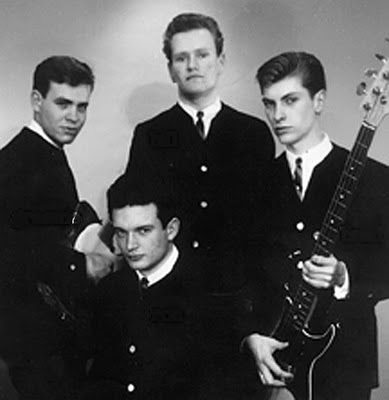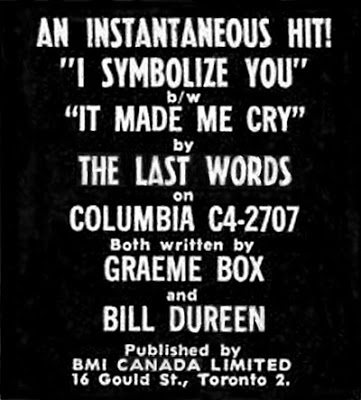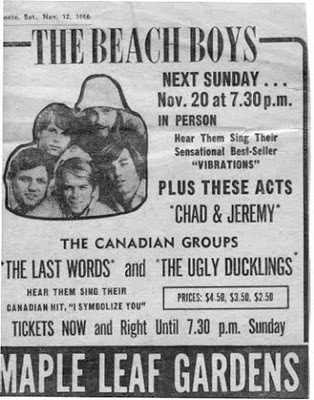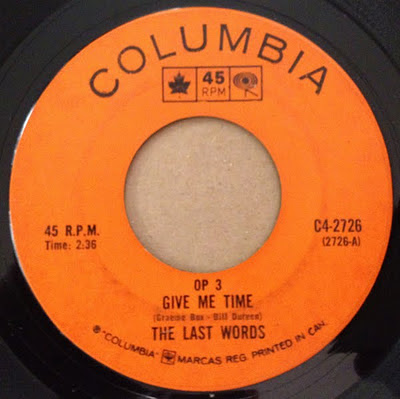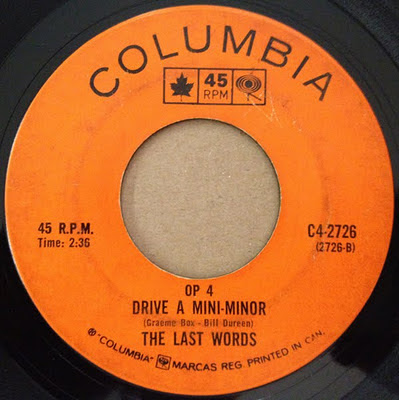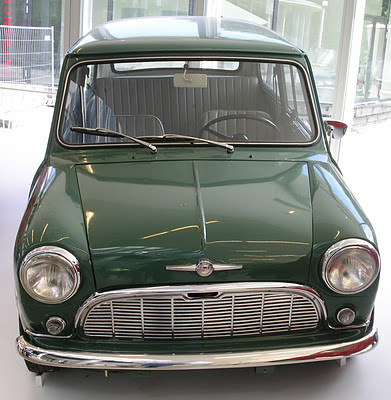The Last Words started when three friends who attended the same school in Clarkson, Ontario, Canada, got together to form a band called The Beachcombers. The founding members were Graeme Box on guitar, Noel Campbell on piano, and Ron Guenther on drums. Graeme met Bill Dureen at art school and brought him into the band. All four of the members could also sing. After playing a couple of gigs, they changed their name to The Nighthawks. In 1964, Noel left the band and Bill Dureen took over the keyboards. Noel’s younger brother Brad Campbell came on board as the bass player. They changed names again, this time becoming The Shamokins.
Keith Box, Graeme’s father, gave the guys some good business advice, and also introduced them to Jack London (Dave Marden) who became their first manager. At the urging of radio personalities, Keith and Jack came up with yet another name for the band. They would now be known as The Last Words. Jack London had been the leader of The Sparrows, the group that evolved into Steppenwolf. He got them a gig in Yorkville Village in Toronto, frequent hangout of hippies and heart of the Canadian music scene, where you could hear folks like Joni Mitchell, Neil young, and Gordon Lightfoot. He also got them into the studio to record some songs.
Their first record contained two original songs, The Laugh’s On Me b/w She’ll Know How on RCA (Canada) 3361 in 1965. That record didn’t get much attention from radio, so they switched labels and made (Op 1) I Symbolize You b/w (Op 2) It Made Me Cry on Columbia (Canada) 2707 in 1966. I Symbolize You took off and peaked at #14 on the 1050 CHUM Top 50 charts in September 1966.
The success of I Symbolize You got them more gigs, including one as an opening act for a Beach Boys concert at the Maple Leaf Gardens. They also played at El Patio Coffee House, Massey Hall, and the O’Keefe Centre, which was also known as the Hummingbird Theatre. They cut a third and final record, Give Me Time b/w Drive A Mini-Minor. Give Me Time climbed up to #20 on the CHUM charts in January 1967.
My copy has some damaged grooves at the beginning that can’t even be fixed through the magic of digital editing. I hope you can ignore the quick drop-outs as you enjoy (Op 3) Give Me Time by The Last Words on Columbia (Canada) 2726 from 1966.
Audio Player
And here’s the flip side, (Op 4) Drive A Mini-Minor:
Audio Player
For those who don’t know, the Morris Mini-Minor was an early model of today’s Mini Cooper. They looked like this!
ARC records took an interest in the group and wanted them to work with producer Brian Ahern but they decided against it. Brian was unknown at the time, but ended up becoming a top producer in Canada working with artists like Anne Murray. They brought in a couple of new members, Bill Meisner (Bill Marion) from The Paupers, and guitar player Neil Mattice.
They were invited to tour the United States, but had to cancel that trip when only three of the guys were able to obtain work visas. Creative differences grew within the group, Bill left the band shortly before they decided to break up on 1 July 1967. Brad Campbell went on to play with The Paupers with Skip Prokop, later the founder of Lighthouse. The Paupers went to New York in 1968 to audition with Albert Grossman, producer of Bob Dylan and Janis Joplin. Janis liked what she heard and asked Albert to hire him to play bass in her Kosmic Blues Band. He stayed with Janis with her Full Tilt Boogie band and toured the world with her. You can hear him playing bass on her album Pearl. When Janis Joplin died, Brad returned to Canada.
The Last Words got back together in the 1980’s with vocalist Gerry Arpa to form The Flashbacks, playing gigs around Ontario for several years until Gerry quit in 1990. They’re still good friends and jam with each other from time to time as well.
There’s more great music on the way! If you want to hear the real music of the 1950’s and 1960’s, and not just the same 100 hit songs, listen to MusicMaster Oldies. We’re up to 125,000 songs now and growing fast!

